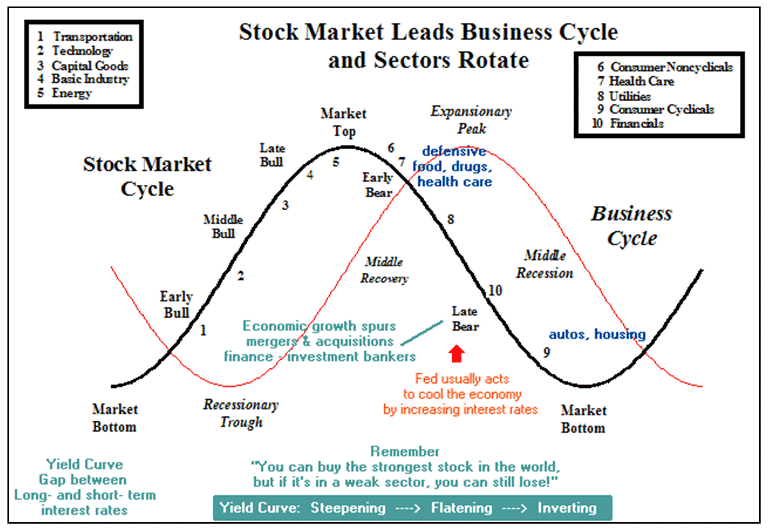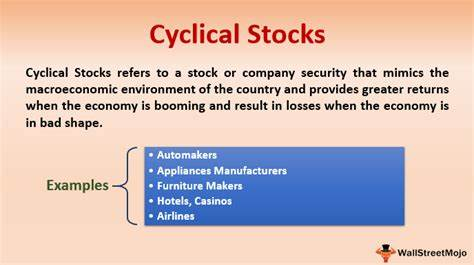Compare in Detail: Cyclical Vs. Non-Cyclical Stocks
Dec 24, 2023 By Triston Martin
Introduction
Investments in cyclical stocks tend to rise and fall with economic growth and contraction. These companies typically do best when the economy is booming. On the flip side, their revenue and profits typically drop significantly when the economy is down. Companies whose day-to-day operations are unaffected by economic cycles are considered non-cyclical, and their stocks are a result. These businesses supply necessities like food, water, and energy to people.
Ultimately, economic cycles have negligible to no effect on the value of these stocks. Non-cyclical stocks are often referred to as defensive stocks because of their ability to cushion the blow of a market decline. There are three ways industries can be categorized, one of which is based on their elasticity in the face of market fluctuations. Businesses are classified as either "cyclical" or "non-cyclical" based on how they affect the economy. Today's investors rely on this data to ascertain whether or not buying a company's shares will yield returns and reduce risk commensurate with their expectations.

Things To Think About Before Investing In Non-Cyclical Stocks?
If you want to make money by investing in non-cyclical stocks, you must do your homework. Investors should first consider several factors, such as the company's brand value, expense ratios, and share turnover, as well as any gains in performance in these areas. These non-cyclical stocks may not be the best bet if the company has a history of failure, poor brand marketing strategies, or product innovations that fall short of consumer expectations. When investing in non-cyclical stocks, customer confidence is crucial in addition to the research. It's possible that despite the brand's upscale veneer, customer reviews, the return policy, and support on the ground are less than stellar.
The company's competitive advantage is an important metric for gauging the potential of your non-cyclical stock investments. If the stock you're considering investing in is underperforming its industry peers and the competition, you may want to look elsewhere. The pinnacle, of course.
How Do Stocks That Are Cyclical Work?
When the economy is doing well, businesses tend to grow. They have the means to invest in cutting-edge tools, infrastructure, research, and development. Construction, equipment retail, real estate, and technology businesses all experience periodic booms and busts. Companies in industries where consumers have some leeway in how much they spend to apply the same logic to industries like food and entertainment. 2
Companies will reduce inventory, put off expansions, and postpone purchases if the economy begins to slow. Companies with cyclical stock values, such as those involved in steel manufacturing, feel the effects of a slowing economy through a reduction in sales. For this reason, investing in cyclical stocks is considered a proactive strategy. When the economy is booming, they are deployed strategically to cash in as quickly as possible on the increased value of investments.
The Way Non-Cyclical Industries Work:
Healthcare, utilities, and consumer product businesses are less susceptible to economic fluctuations. The term "non-cyclical" describes industries producing or supplying necessities rather than luxury goods or services. The companies' bottom lines are resilient through economic upheavals. Even though we are experiencing financial hardship, we will not stop eating.
The term "defensive industries" refers to those sectors where revenue changes very little in response to macroeconomic shifts. Additionally, they can "defend" the investors from the economic downturn. Businesses providing necessities like shampoo, soap, and toothpaste could be investigated. These are necessities that shouldn't be put at risk. It's the same in the utility sector. They are also considered defensive because a recession typically has little effect on their target market. No matter how bad things get economically, electricity, water, and heating will always be necessities.
Cyclical Vs. Non-Cyclical Stocks
Below we have highlighted the distinction between Cyclical vs. Non-Cyclical Stocks:
Relationship With Economy
Cyclical stocks are more sensitive to economic fluctuations than non-cyclical ones. Non-cyclical industries and businesses can keep running whether the economy is growing or contracting.
Volatility
Non-cyclical stocks are reliable and consistent, while cyclical stocks, which fluctuate in response to changes in consumer demand, are riskier investments. The opposite of cyclical stocks is non-cyclical ones, which can be considered "defensive."
Potential Return And The Risk
Although cyclical stocks carry a higher risk, they can generate substantial returns during economic expansions. Investors can make a lot of money trading cyclical stocks if they have the right information and timing. Non-cyclical stocks, on the other hand, have the potential to deliver stable returns with lower volatility. To add to that, they provide safety for investors during economic downturns.

Conclusion:
Stocks with a cyclical nature are volatile and susceptible to economic trends. In bad economic times, investors tend to favor non-cyclical stocks. Companies with a cyclical revenue stream sell goods and services that are popular when the economy is doing well but suffer when consumer spending is reduced, such as luxury items. Companies not affected by economic cycles typically sell necessities like food, clothing, and cleaning supplies like toothpaste and soap. Cyclicals tend to rise and fall in tandem with the economy, while non-cyclical stocks can hold their own during both good and bad economic times.

The Determinants of Oil Prices
Oct 11, 2023
The price of oil is heavily dependent on traders who place bids in oil-related futures contracts on the market for commodities based on their expectations of demand and supply of oil

Complete Guide to Paying for College: Strategies and Tips
Nov 05, 2024
To establish an overall budget that lists all money inflows and outflows, you would need to begin to afford college with no headache.

The 7 Most Promising Places to Put Your Money
Nov 23, 2023
Looking to invest? Find the best, safest places to invest your cash and get the highest returns. Read through to maximize your earnings with these 7 investments.

Definition of Dividend Investing
Nov 02, 2023
The practice of purchasing stocks that pay dividends, also known as dividend investing, is a strategy that may be used to generate a consistent flow of income from one's assets and is referred to as an investment strategy. This income is in addition to any increase that may have occurred in your portfolio due to the value of the stocks and other assets increasing.

Understanding the Meaning and Importance of Human Resource Planning
Jan 11, 2024
This article explores the importance of human resource planning, its process, and its impact on an organization's success, with examples from leading companies.

WWE Credit Card – 5 Important Things to Learn About it
Jan 20, 2024
Are you curious about the five important things about the WWE Credit Card? Then this article has everything you need to know.

Peerform Uncovered: A Comprehensive Review of Personal Loan Services
Feb 04, 2024
Explore Peerform's personal loan offerings, eligibility criteria, and borrowing experience in this comprehensive overview.

LLC Tax Deadlines: Important Due Dates for Your Business
Jan 12, 2024
This article will give vital information about the LLC Tax Deadlines. We have also discussed tax deadlines to remember

Total Visa Credit Card
Nov 30, 2023
If you're a poor creditor, you can only get a secured credit card that requires you to put up hundreds of dollars as a security deposit. The non-secure Total Visa Credit Card offers an alternative.

Navigating Tax Season: 10 Essential Tips for Managing Unemployment Income
Mar 21, 2024
Discover key insights on managing tax implications for unemployment income, including tips on deductions, reporting income, and minimizing tax burdens.

Unlocking the Secrets of Travel Insurance: How It Works and Why You Need It
Dec 03, 2023
Is travel insurance your secret weapon for worry-free adventures? Learn how it safeguards your journey and why it's essential for every traveler.

Maximizing Your Income: 9 Effective Strategies for Reducing Taxable Income
Mar 24, 2024
Discover effective ways to lower your taxable income, utilizing tax-deferred accounts, credits, and strategic planning, for financial growth.